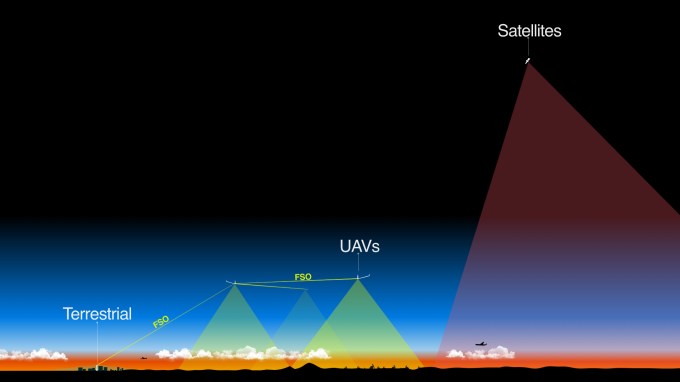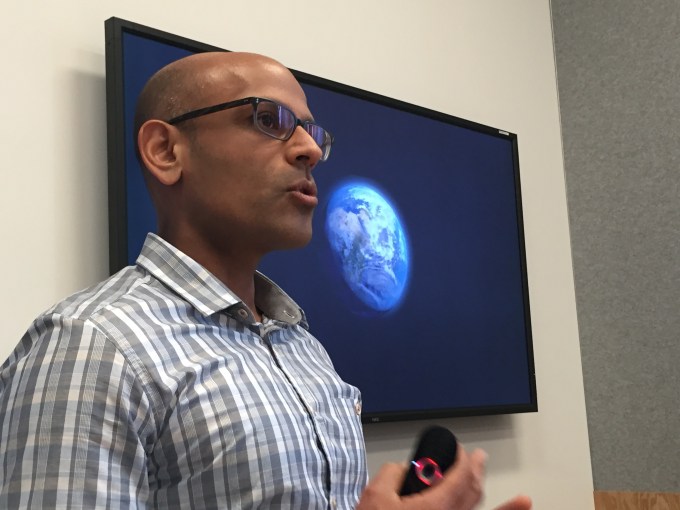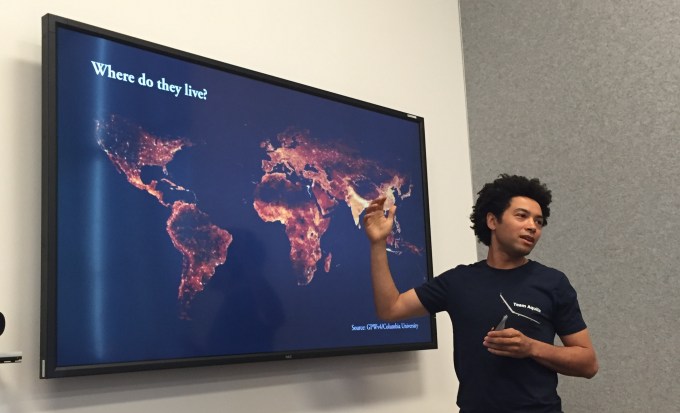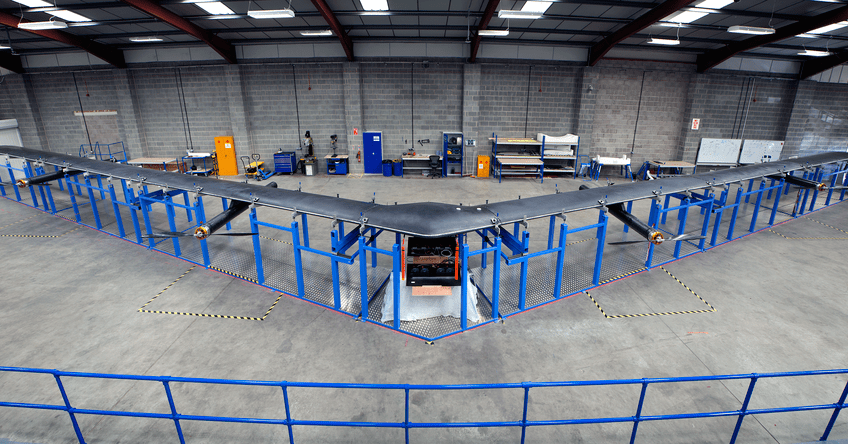Facebook today detailed plans for its solar-powered, laser-connected, Internet-beaming Aquila drones, but confirmed it’s not going to compete with Internet Service Providers. “Our intention is not to be an operator” Facebook’s VP of engineering Jay Parikh told an assembly of reporters. “We’re not going to be ‘Facebook ISP.’”
Instead, Facebook plans to work with carriers around the world to equip them with these drones so they can sell Internet connectivity to the 10 percent of the population in remote areas out of reach of existing mobile networks. Facebook also says national governments have also expressed interest in getting Aquila drones for their countries.

Facebook has largely billed its Internet.org project as a humanitarian effort to bring people into the knowledge economy. But Parikh confirmed to me that selling or licensing the solar drones, Free Space Optics lasers, and other technologies are options. That means Facebook could earn money while fulfilling its mission to connect the whole world.
Yesterday on its earnings, Facebook reported a massive year-over-year increase in expenditures from $1.5 billion to $2.7 billion per quarter, mostly for R&D of projects like these drones. Selling or licensing them could recoup those costs.

Facebook also announced two big connectivity milestones today:
- The first of Facebook’s Aquila drones is fully built – The solar-powered drone can remain aloft for 90 days, flying between 60,000 and 90,000 feet above weather and commercial airspace, and could distribute Internet to an area around 50 miles across below in places like India or Nigeria. It has the 140-foot wingspan of a Boeing 737 but only weighs 880 pounds, about one-third as much as a Prius, and works despite the intense cold at high altitudes. Facebook is now doing ground tests of the drone and plans to roll it out for testing, likely somewhere in the U.S., over the next year.

- Facebook’s Internet-beaming laser delivered a 10 gigabit connection in tests, roughly 10X the previous record – The laser is used to beam a connection from a fiber-optic cable on the ground in a city up to one of the Aquila drones, which has its own laser to relay that connection to other drones. The targeting system on the laser lets it hit a receptor target the size of a dime from 10 miles away, even while it and the target are flying. Prior attempts by NASA, research companies, and universities had only achieved around a 1 gigabit laser connection, making Facebook’s progress a huge scientific leap forward.
Here’s a video from Facebook about the Aquila drone:
Announced in late 2013, the Facebook-led Internet.org is a partnership of telecom companies designed to bring Internet access to the remaining 5 billion people without it. The problem was that the rate of people getting online for the first time was slowing down, so Facebook decided to step in. Accomplishing ubiquitous connectivity breaks down to solving three problems:
- Affordability – Data access is too expensive for many people, so Facebook launched the Internet.org app a year ago to offer free basic Internet to people through carrier partners. Those partners earn money if people get hooked and want the rest of the web. It’s now operating in 17 countries.
- Awareness – Many people don’t know the potential benefits of the education, health, job and other information available through the Internet.
- Accessibility – 10 percent of the world’s population are outside the reach of existing data networks. Facebook has built terrestrial satellites that can beam Internet over long distances, and satellites that can deliver it from space. But today it detailed its Aquila solar-powered drones, which have made a lot of progress recently.
Facebook’s not the only one trying to solve the last problem. Google’s Project Loon uses lighter-than-air balloons to beam Internet down to people in remote areas. Yesterday Google announced that it’s partnered with the government of Sri Lanka to blanket the entire country with connectivity. Facebook and Google are racing because both want people to remember them as the company that granted them the Internet.

Why not just use traditional cell phone towers? It’s extremely expensive to buy the land for, build, operate and protect these towers. That’s not cost-effective since towers can only reach a limited area where population is sparse and buying power is low, so prices need to be, too. Aerial vehicles could be much cheaper once the science is ready.
When combined, Facebook hopes its terrestrial, drone and satellite projects could make sure every person on the planet can have Internet access. And since Facebook is one of the most popular things people do with Internet, it stands to gain a lot more users if it can get them online.
Mark Zuckerberg posted about today’s news saying “Using aircraft to connect communities using lasers might seem like science fiction. But science fiction is often just science before its time.”































Comment